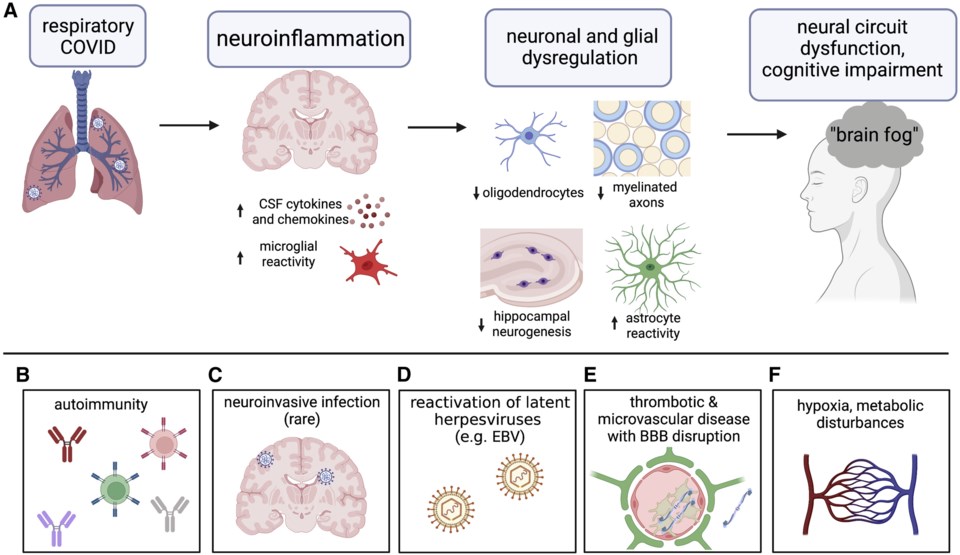A recent state report details the prevalence and impact of long COVID on Coloradans, and emphasizes the need for more support for those impacted.
Up to 650,000 Coloradans may be suffering from long COVID, according to the report, which was released by the state’s Office of Saving People Money on Health Care.
Symptoms can include respiratory, cardiovascular, gastrointestinal and neurological issues; rashes, myalgias, dysmenorrhea, cognitive impairment, difficulty concentrating, headaches, anxiety, depression and other symptoms.
“The burden of these experiences are estimated to already impact almost 7% of American adults, or 23 million people in the U.S.,” the report states.
The country has seen an increased number of people with disabilities after the pandemic, according to the study.
“Patients may have organ damage that can persist long after the acute phase of the infection has passed,” the report reads. “COVID-19 patients were also at higher risk of new cardiovascular disease outcomes such as acute myocardial infarction, coronary disease and heart failure.”
The report cites a study, published in the Neuron journal in late 2022, that researched the possible causes of “brain fog” associated with long COVID. The symptom may be caused by the disease directly infecting the brain, causing neuroinflammation and autoimmunity, the Neuron study shows.

Children infected with the disease have twice the rate of heart disorders and other systemic diseases, according to the state report.
More than 76,000 COVID-19 hospitalizations have been reported in our state since the pandemic began, according to the latest data from Colorado Department of Public Health and Environment. Nearly 15,000 people in our state have died from the infectious disease, and 1.7 million cases have been reported in Colorado.
More than 1.1 million people in the U.S. have died from COVID-19, according to data from the Centers for Disease Control and Prevention.
Those who have been hospitalized with the disease, or who have more than five symptoms, are more likely to have long COVID, according to the state report.
“Women are twice as likely to develop Long COVID compared to men.” the report states. “The presence of underlying health conditions also increases the risk.”
A 35-year-old Coloradan, Amanda, was quoted in the state report.
“COVID has wrecked the person I thought I was before,” her statement read, in part. “I am newly engaged and scared to think about having children due to what COVID has done to my body. I am 100% a different person after COVID."
Long COVID patients and caretakers are often forced to drop out of the workforce, according to Harvard University Economist David Cutler. In a paper, he estimates the financial toll of long COVID to cost the U.S. economy $3.7 million.
Coloradans who are impacted by the long-term impacts of the disease need more access to community-based support and rehabilitative services, according to the report.
Some hospitals in our state are conducting long COVID clinics to better understand the impacts and symptoms; however, coordination needs to improve among agencies, organizations and health care centers in order to help patients, according to the study.
“The Office of Saving People Money on Health Care will work to build effective partnerships with academic institutions, public health agencies, policy centers, advocates, health care providers, research organizations, tribal entities, and government agencies to cooperatively define problems and capture the data necessary to support the State in understanding and planning for the impacts of Long COVID,” the report states.


.jpg;w=120;h=80;mode=crop)
